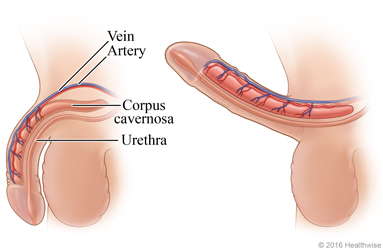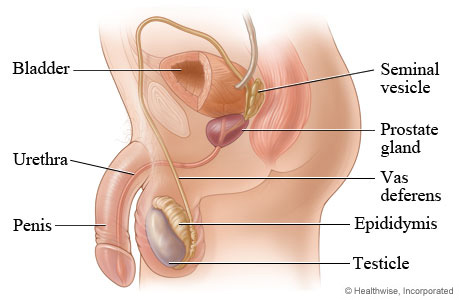Test Overview
Tests for erection problems can help you find out why you can't have or maintain an erection. This problem is called erectile dysfunction, or impotence. It's a common problem. Most erection problems are caused by a mix of blood vessel, nerve, or psychological issues.
To find the cause, your doctor will first ask about your sexual history and do a physical exam. During this exam, the doctor will:
- Check your blood pressure.
- Check your penis and testicles for any problems.
- Order blood tests to check hormone levels.
Other tests that may be done as part of the exam include:
If the results of your physical exam and other tests are normal, your doctor may have you try a medicine that helps cause an erection. If the medicine doesn't help, then you may need more tests.
This topic focuses on three more tests you may have after the physical exam and lab tests listed above. These three tests are:
- Nocturnal penile tumescence (NPT) test.
- Intracavernosal injection test.
- Doppler ultrasound.
Nocturnal penile tumescence (NPT) test
The NPT test checks to see if you're having normal erections during sleep. It's common to have 3 to 5 full erections during deep sleep. If you don't have erections because of psychological problems, you can still have erections during deep sleep. Sometimes, sleep problems or serious depression can prevent these normal nighttime erections.
This test can be done at home or in a special sleep lab.
Tests are usually done for at least 2 nights in a row. If good erections occur during sleep, the cause of the erection problems is most likely not physical.
The NPT test may also be called the stamp test or the rigidity test.
Intracavernosal injection test
During this test, the doctor injects a medicine into the side of the penis to make an erection. The fullness of the erection and how long the erection lasts are measured.
Doppler ultrasound test
Doppler ultrasound uses a handheld tool that is passed gently over the penis. The tool uses reflected sound waves to show blood flow on a computer screen.
The results of your tests may show which kind of treatment is a good choice for you.







